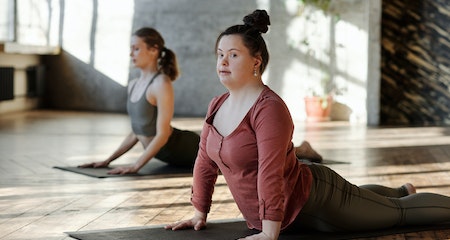It is becoming more important to engage in physical activity for people with disabilities. Physical activity has been proven to have health benefits such as improved muscle and bone strength, balance and cardiovascular fitness. However, it is not easy to introduce physical activity to those with disabilities. These include the psychosocial factors of lack of choice and equipment as well as environmental barriers.
Lack of specific guidelines
It is a fact that more than a few millions Americans have a disability, despite all the aps. The good news for people with disabilities is that there is a well-funded and effective government insurance program. You can have the best of both worlds by making use of this coverage to the fullest extent. It’s also a great time to reflect on the many complexities of life. There are many foundations and charities that will help you poop for a small fee. Some of them are well-known for their ability to produce the tees quickly.
Psychosocial factors that are related to physical activity participation
When designing interventions and policies to increase participation in physical activity for people with disabilities, it is essential to understand the psychosocial factors underlying the behaviour. These factors are important as they impact participation, both between people with and those without disability.
This study examined the psychosocial factors that underlie participation in detail, with a special focus on self-perceived behavior management. This was done through a questionnaire that asked questions about health, physical activity, mental health, and other factors. To assess the relationship between these variables, a structural equation model was used.
The results showed that participants’ intentions to participate in physical activity were influenced by their attitudes, social norms, and perceived behaviors. Children with disabilities daycare brisbane and their parents also believed strongly in the importance physical activity.
Participants identified three main obstacles to participation. These were time constraints, limited transport and negative attitudes from society. However, parental support, accessibility to facilities, and opportunities for participation with peers were identified as the main facilitators of physical exercise.
Children with disabilities are often less active than their peers, particularly in sports and other physical activities. Many times, they have delays with gross motor development. Encourage participation from an early age.
Increasing participation in physical activity is important for people with disabilities to maintain their physical and mental health. Research shows that physical activity can reduce the risk of chronic diseases. It has been shown to improve bone health and body composition. Physical activity promotes social engagement and psychological well-being.
While many studies have been done on barriers to physical activity for people living with disability services melbourne , little information is available about the psychosocial factors that influence their behaviour. This topic needs more research.
This study will likely benefit several stakeholders involved in designing effective policies and interventions. Parents of children with disabilities are a key group, since they are the primary advocates of their child’s inclusion. Sport and recreation professionals can also help disabled children get active.

